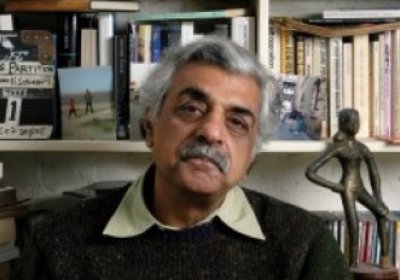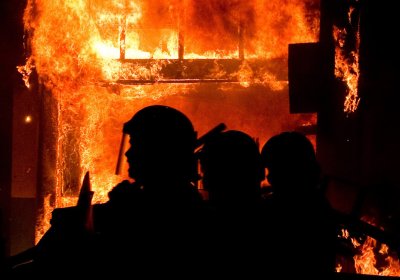The European Union was awarded the Nobel Peace Prize on October 12. The chairperson of the committee tasked with awarding the prize, Thorbjoern Jagland, praised the EU for transforming Europe “from a continent of wars to a continent of peace”.
Tariq Ali
Angered by the non-stop, one-sided propaganda on CNN and BBC World, usually a prelude to NATO bombing campaigns (including the six-month onslaught on Libya, the casualties of which are still hidden from the public) or direct occupations, I was asked to explain my views on RTV.
I did so, denouncing the promotion of the Syrian National Council by Western media networks and pointing out that some of the armed-struggle opposition were perfectly capable of carrying out their own massacres and blaming them on the regime.
British-Pakistani author, journalist and activist Tariq Ali chaired a rally outside the Ecuadorean Embassy in London on August 19. The rally came before WikiLeaks editor-in-chief Julian Assange's widely publicised speech. Ali also gave two speeches. In the second, he spoke about why it was that Assange and WikiLeaks had found support in Ecuador and Latin America more generally — and highlighted the revolutionary movements that have swept the continent to challenge US corporate domination.
The article below was abridged from Correo Del Orinoco International.
“A map of the world that does not include Utopia is not worth glancing at”, wrote Oscar Wilde, “for it leaves out the one country at which humanity is always landing. And when humanity lands there, it looks out, and seeing a better country, sets sail. Progress is the realisation of Utopias.”
Why is it that the same areas always erupt first, whatever the cause? Pure accident? Might it have something to do with race and class and institutionalised poverty and the sheer grimness of everyday life?
The US-NATO intervention in Libya, with United Nations Security Council cover, is part of an orchestrated response to show support for the movement against one dictator in particular.
In doing so, it aims to bring the Arab rebellions to an end by asserting Western control, confiscating their impetus and spontaneity and trying to restore the status quo.
It is absurd to think that the reasons for bombing Tripoli or for the French airforce’s “turkey shoot” (the bombing of fleeing Libyan soldiers) outside Benghazi are designed to protect civilians.
The November 27 terrorist assault on Mumbais five-star hotels was well planned, but did not require a great deal of logistic intelligence: all the targets were soft.
The decision to make public a presidential order in July authorising US strikes inside Pakistan without seeking the approval of the Pakistani government ends a long debate within, and on the periphery of, the Bush administration.
It is year six of the UN-backed NATO occupation of Afghanistan, a joint US-European Union mission. On February 26 there was an attempted assassination of US Vice-President Dick Cheney by Taliban suicide bombers while he was visiting the “secure” US air base at Bagram (once an equally secure Soviet air base during an earlier conflict). Two US soldiers and a mercenary (“contractor”) died in the attack, as did twenty other people working at the base. This episode alone should have concentrated the US vice-president’s mind on the scale of the Afghan debacle. In 2006 the casualty rates rose substantially and NATO troops lost 46 soldiers in clashes with the Islamic resistance or shot-down helicopters.





